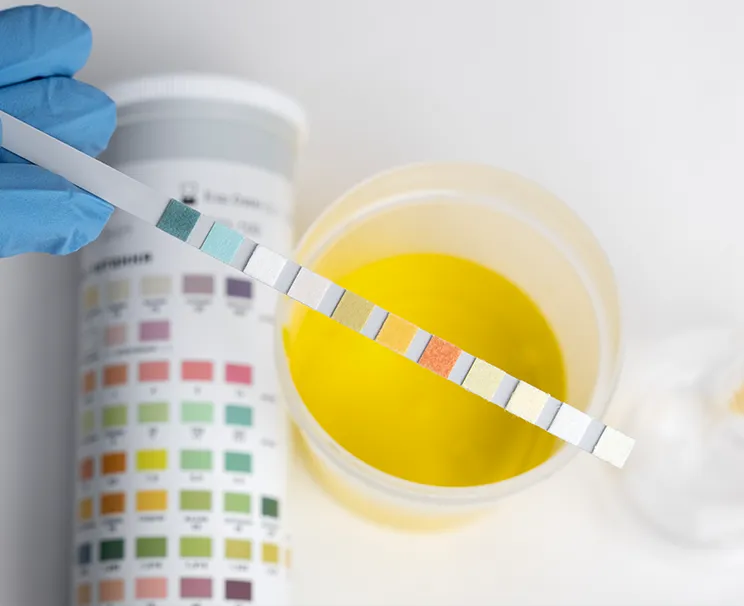Beta HCG (Human Chorionic Gonadotropin) is a hormone produced by the placenta during pregnancy. In the early stages of pregnancy, the levels of this hormone rapidly increase, indicating the onset and continuation of pregnancy. The Beta HCG test is used as a standard method for diagnosing pregnancy. Additionally, monitoring the levels of this hormone is important for assessing whether the pregnancy is progressing healthily.
Beta HCG levels are also used in diagnosing certain types of cancer. In cases of testicular cancer, ovarian cancer, and certain types of trophoblastic disease, the levels of this hormone can rise. This assists doctors in diagnosing these cancers and is considered an important indicator during the treatment process. Comprehensive monitoring of hormone levels plays a critical role in managing not only cancer but also conditions such as early pregnancy loss or ectopic (outside the uterus) pregnancies.
What is Beta HCG?
Human Chorionic Gonadotropin is a hormone used to detect and monitor pregnancy. This hormone, secreted by the placenta, begins to be produced once a fertilized egg implants in the uterus. A positive pregnancy test result emerges from the detection of Beta HCG in the blood or urine. This test is particularly used in diagnosing early-stage pregnancies.
HCG levels are also important for observing the progress of the pregnancy. Regularly measuring these values is a critical method for understanding whether the pregnancy is continuing healthily. HCG hormone levels typically double approximately every two days during the first few weeks of pregnancy and reach a peak around 10-12 weeks of gestation.
When a pregnancy test is negative, it means that the HCG levels in the blood or urine are very low, indicating no pregnancy. However, low values can sometimes appear in tests done very early or in abnormal situations such as an ectopic pregnancy.

The measurement of HCG in blood as a hormone test is a fundamental tool in managing both normal and problematic pregnancies. Doctors use this test to understand if the pregnancy is progressing healthily, to identify potential risks, and to determine necessary interventions. This test allows for the planning of important health interventions early on and a safer management of the pregnancy process.
What Should HCG Levels Be According to the Weeks of Pregnancy?
HCG (Human Chorionic Gonadotropin) values vary greatly depending on the week of pregnancy and can also vary from person to person. However, average expected values for specific weeks of pregnancy can be used. These values are typically expressed in international units per milliliter (mIU/mL) according to the weeks of pregnancy:
- 3rd week of pregnancy: 5 – 50 mIU/mL
- 4th week of pregnancy: 5 – 426 mIU/mL
- 5th week of pregnancy: 18 – 7,340 mIU/mL
- 6th week of pregnancy: 1,080 – 56,500 mIU/mL
- 7-8 weeks of pregnancy: 7,650 – 229,000 mIU/mL
- 9-12 weeks of pregnancy: 25,700 – 288,000 mIU/mL
- 13-16 weeks of pregnancy: 13,300 – 254,000 mIU/mL
- 17-24 weeks of pregnancy: 4,060 – 165,400 mIU/mL
- 25-40 weeks of pregnancy: 3,640 – 117,000 mIU/mL
It is expected that HCG levels in the early stages of pregnancy will double every 48-72 hours. This is a sign of a healthy pregnancy. However, these values are only a reference, and actual values can also be normal outside these ranges.
When evaluating HCG levels, trends over time rather than a single measurement are considered. If Beta HCG levels in a pregnancy are lower or higher than expected, or if they do not show the expected pattern of increase, additional tests and evaluations may be recommended.










